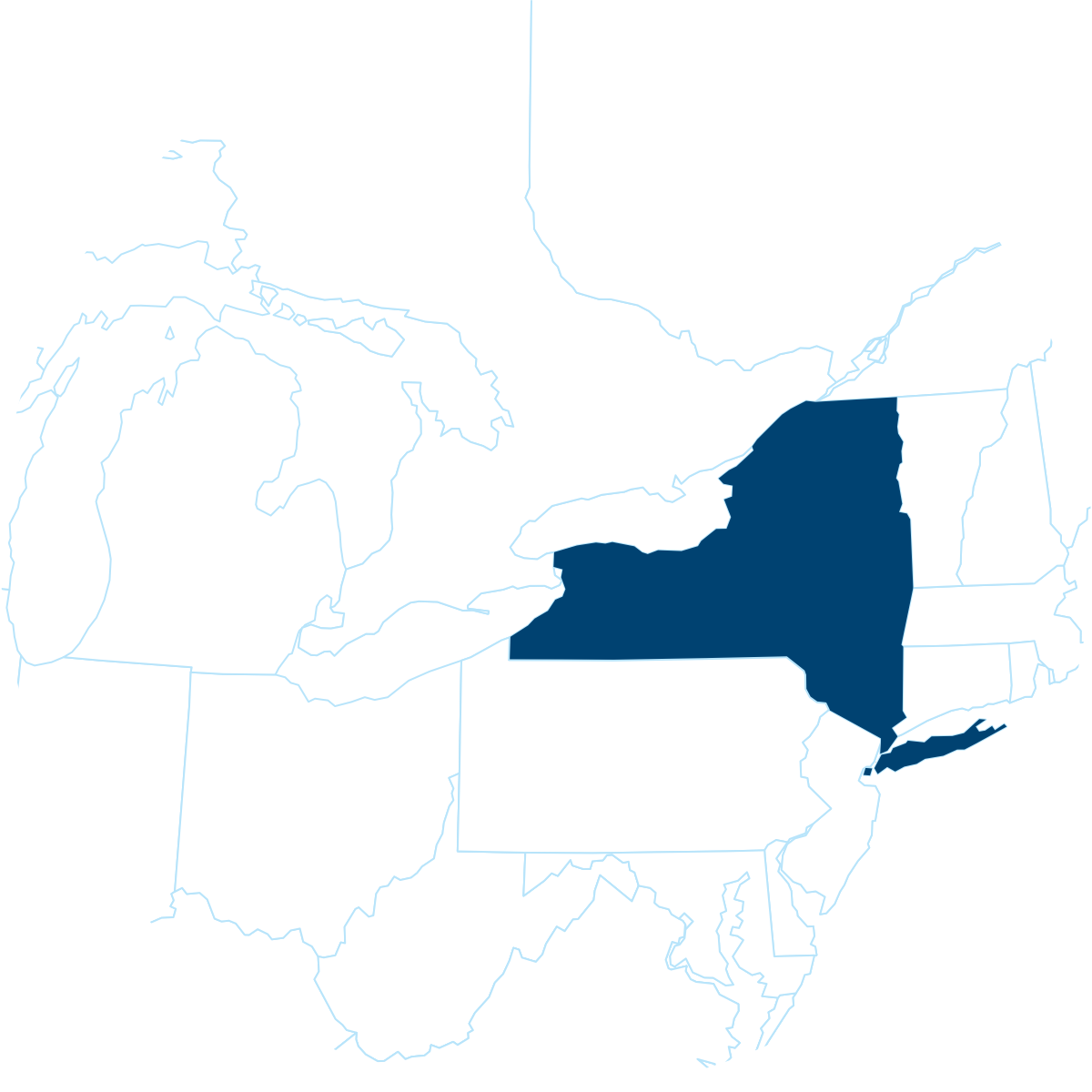Climate Leadership
244 Madison Ave., Unit 1248, New York, NY 10016
Acadia Center works strategically with partners on advancing New York energy and climate change policies: energy efficiency, renewable energy, carbon pricing, beneficial electrification, utility innovation, and equity.
As New York works to meet the challenge of its climate goals— achieving 9 GW of offshore wind by 2035, 100% zero-emission electricity by 2040, reduce economy-wide emissions by 85% by 2050, and ensure that no fewer than 35% of climate benefits occur in disadvantaged and environmental justice communities — Acadia Center is working with partners to provide accurate information and data and pathways to successful implementation. By drawing from our regional experience in New England and New York, we can offer best practices and practical approaches.

Our work in New York
Acadia Center has long worked with New York partners on regional initiatives such as the Regional Greenhouse Gas Initiative (RGGI) and climate issues affecting the Independent System Operator in New England (ISO-NE) and the New York ISO (NYISO). Our recent report with WeAct “New York’s Household Energy Burden Imperative: Challenges and Solutions” shines a light on how New Yorkers can benefit from energy efficiency and decarbonization. This climate and energy analysis work is producing data-driven materials on how New York can expand its clean energy markets to meet goals.
Energy Efficiency and Clean Buildings
As New York evaluated its approach to energy efficiency goals, Acadia Center’s data analysis and policy expertise helped to demonstrate that the state should upgrade its investment levels and energy savings goals to meet those successfully being achieved in neighboring states, particularly Massachusetts and Rhode Island (two of the leading efficiency states in the nation). Acadia Center advocated for a planned progression to ramp up savings goals, in line with what Massachusetts and Rhode Island had done over the prior decade. Many electric and gas utilities that operate in New England are also dominant utilities in New York State, which allows Acadia Center experts to apply their knowledge of utility positions and performance across state lines, and is another example of the need for a regional approach. Acadia Center’s information and recommendations were highly influential and, with many leading energy voices, New York is now on a path to harness more of the most cost-effective energy resource New York can use: energy efficiency.
Clean Electricity: Advancing Consumer and Climate Goals
- Utility Rate Reform. When utilities proposed increasing their monthly fixed charges that consumers would have to pay – regardless of how much electricity they used – Acadia Center spearheaded a coalition of parties that intervened in rate cases and made the point that these rate proposals harmed consumers, were regressive, not supported by empirical data and would send the wrong signals to consumers to use energy efficiently. This coalition won the first ever roll-backs in fixed charges in New York and set the stage for a new way to evaluate rate policy and clean energy.
- Reforming the Energy Vision (REV): New York’s ambitious REV framework set a national example for state action to rethink the decades old approach to the role of utilities and the energy grid. New York embraced a new vision that puts consumers, climate and clean energy at the center of an energy system. Acadia Center intervened in virtually all of the key REV proceedings to apply its grid innovation and clean energy data and policy recommendations.
Regional Climate Initiatives
Acadia Center has long worked on regional initiatives that bring multi-state policy approaches to climate policy. We are helping to coordinate stakeholders and share information in the following initiatives:
- Regional Greenhouse Gas Initiative (RGGI): Acadia Center’s leadership work on RGGI includes coordinating the regional stakeholder communications that provide a forum for discussing issues, developing strategies, and creating policy positions by those working to support RGGI and influence the investment of the funding stream it creates.
- Regional Clean Building Heating: Acadia Center works with partners to lead the Smart Heat Collaborative, a multi-organization effort to share information and strategies on advancing clean heating in the Northeast and mid-Atlantic states. Acadia Center believes that regional interactions are powerful tools to press states to act, share best practices and influence entities that operate on a regional basis, such as many electric and gas utilities.
Partnerships
Acadia Center has a tradition of working closely with numerous coalitions and partners in New York, such as Renewable Heat Now, the Fixed Charge Coalition, We Act 4 Change, and RGGI.



















